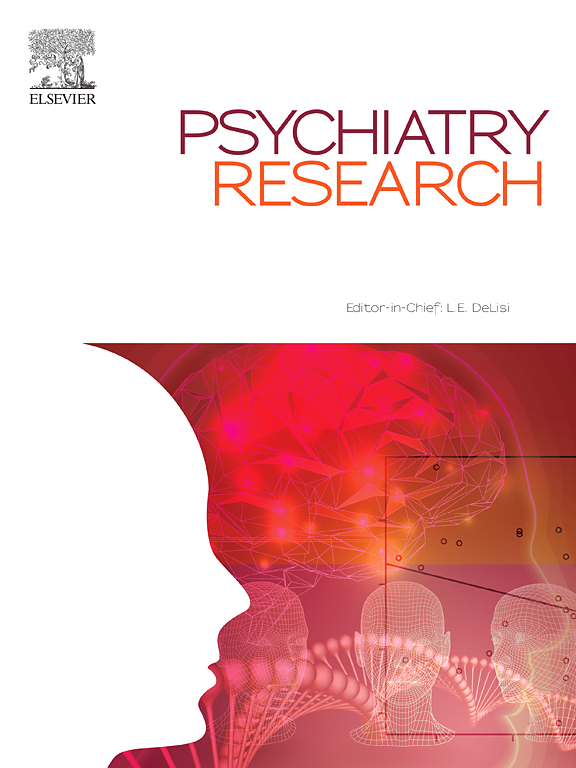Maternal perinatal depression and the risk of disruptive behavioural disorder symptoms among offspring: A systematic review and meta-analysis
IF 4.2
2区 医学
Q1 PSYCHIATRY
引用次数: 0
Abstract
Inconsistent findings exist regarding the association between maternal perinatal depression and the risk of Disruptive Behavioural Disorder (DBD) symptoms, including Conduct Disorder (CD) and Oppositional Defiant Disorder (ODD) symptoms in children and adolescents. This study aimed to estimate the overall risk of DBD symptoms in offspring of mothers who have experienced perinatal depression. PubMed, Medline, Embase, Scopus, CINAHL, and Psych INFO were searched. A meta-analysis was conducted using inverse variance-weighted random-effects models. The odds ratios (OR) with 95 % confidence intervals (CI) were presented as summary effect estimates. Among the 4,591 publications identified, 12 studies, comprising 51,468 mother-offspring pairs were included in the final analysis. A meta-analysis showed that maternal perinatal depression was associated with a 47 % increased risk of any DBD symptoms (OR = 1.47, 95 % CI = 1.18–1.76), a 41 % increased risk of CD symptoms (OR = 1.41, 95 % CI = 1.04–1.77), and a 53 % increased risk of ODD symptoms (OR = 1.53, 95 % CI = 1.11–1.94) in offspring. This meta-analysis highlights a significant link between maternal perinatal depression and an elevated risk of DBD symptoms in children and adolescents, underscoring the importance of timely interventions and support for at-risk children and adolescents.
求助全文
约1分钟内获得全文
求助全文
来源期刊

Psychiatry Research
医学-精神病学
CiteScore
17.40
自引率
1.80%
发文量
527
审稿时长
57 days
期刊介绍:
Psychiatry Research offers swift publication of comprehensive research reports and reviews within the field of psychiatry.
The scope of the journal encompasses:
Biochemical, physiological, neuroanatomic, genetic, neurocognitive, and psychosocial determinants of psychiatric disorders.
Diagnostic assessments of psychiatric disorders.
Evaluations that pursue hypotheses about the cause or causes of psychiatric diseases.
Evaluations of pharmacologic and non-pharmacologic psychiatric treatments.
Basic neuroscience studies related to animal or neurochemical models for psychiatric disorders.
Methodological advances, such as instrumentation, clinical scales, and assays directly applicable to psychiatric research.
 求助内容:
求助内容: 应助结果提醒方式:
应助结果提醒方式:


